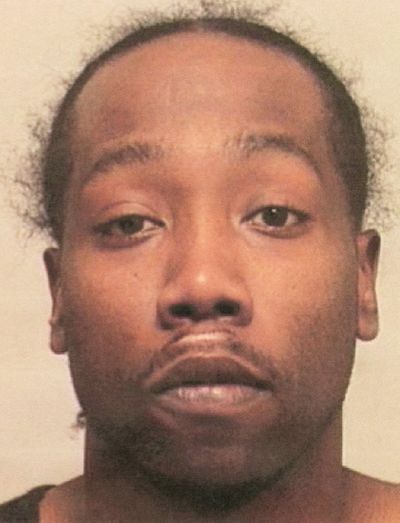Spokane man eschews plea deal, gets 184 years

A man sentenced to 184 1/2 years in prison for a shooting that injured one person declined a plea deal that would have given him 10 to 12 years in prison.
Gregory Sharkey, Jr., 27, had three attorneys in nearly two years before Spokane County Superior Court Judge Greg Sypolt convicted him of 10 counts of first-degree assault, said his public defender, Terence Ryan.
Sharkey was arrested in December 2009 after a two-day crime spree in which shots were fired at a Spokane police officer and at a group of young people outside a home. Sharkey fired indiscriminately into the group while co-defendant Tony E. Dawson shot one person.
Later, after passing by the shooting scene, Dawson opened fire on a Spokane police patrol car; no one was injured.
State law requires that sentences for violent felonies be served consecutively. The first count of first-degree assault carried a standard range of 24 to 29 years, including enhancements because Sharkey and Dawson used firearms. The remaining nine counts each brought a standard range of about 17 to 20 years.
The result was an eye-opening sentence of 2,215 months — the low end of the standard range. Imposed by Sypolt late last month, Sharkey’s sentence is an example of what can happen under strong gun sentencing laws enacted by the Washington state Legislature in 1995.
“We made him an offer of much less than that and he chose to go to trial,” said Spokane County Deputy Prosecutor Mark Cipolla, who handled the case. “I don’t have any direction at sentencing once somebody goes to trial.”
In addition, Sharkey chose to take his case to a bench trial instead of a jury trial, Ryan said.
“I told him it might be wiser to go in front of a jury,” Ryan said. “That’s 12 people who have to make a decision, with a judge it’s just one person.”
Sharkey declined an interview Monday at the Spokane County Jail, where is awaiting transport to prison. Ryan said Sharkey didn’t seem surprised by the sentence.
“He was surprised that the judge found him guilty, but he wasn’t surprised at the length of the sentence,” Ryan said. “He knew all about the sentencing, the possible worst-case scenario.”
Cipolla said the Legislature “is tough on people using multiple guns in violent crimes,” adding that he agrees with that stance. “Ten people could have ended up dead here.”
Sharkey supplied both guns used in the crimes, Cipolla noted.
Dawson is serving about 21 years for the crimes. Margaret Shults, who was in a stolen SUV from which Dawson fired shots, is serving 77 months.
Both did what Sharkey did not: accept a plea deal.
Sypolt’s decision to convict Sharkey of 10 violent felonies left the judge no choice at sentencing.
“It’s apparently what the Legislature wanted when they passed what’s called ‘hard time for armed crime,’” said Ryan, Sharkey’s attorney.
Sharkey’s convictions have already been appealed.
Sharkey had a previous felony conviction for first-degree robbery. He was shot while committing that crime in February 2006.
Cipolla said he’s “had a couple” of 100-plus-year sentences while a deputy prosecutor, including Anthony L. Wright, who’s serving 134 years for a drive-by shooting that killed a 3-year-old girl in 2001.
“Few and far between, but they’re there,” he said.